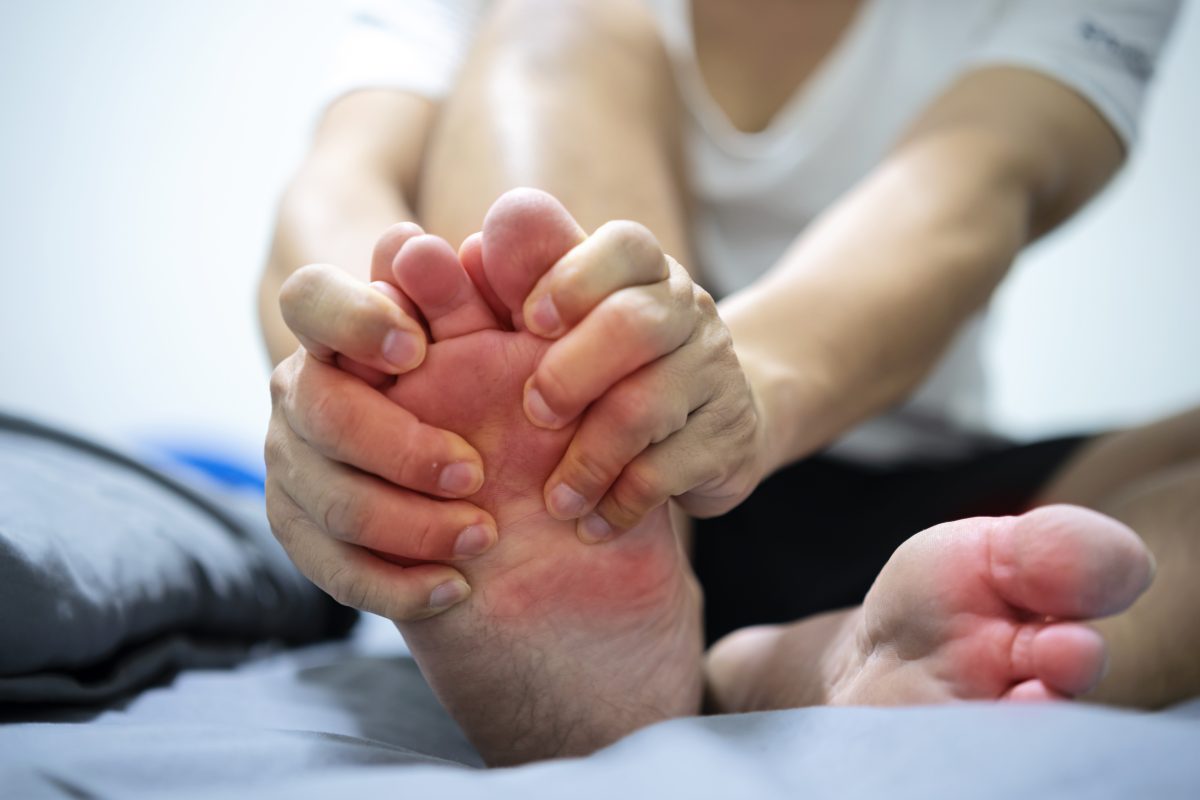Gout is caused by high blood uric acids concentrations (hyperuricemia), where crystals of uric Acid build up in the joints. These crystal accumulations can cause painful inflammation around and in the joints. Here you will find several home remedies that will help you against gout: Home Remedies For Gout
Gout Causes
Uric acid is a byproduct of the destruction of nucleic acids in cells (ribonucleic and deoxyribonucleic acids [RNA]). Because the body constantly breaks down cells and creates new ones, it is only found in very small quantities in the blood. The body can also convert certain foodstuffs, known as purines, into uric acids. Purines are the building blocks of DNA and RNA. The kidneys and the gastrointestinal tract are the main routes to eliminate uric acid from blood.
The kidneys are unable to eliminate uric acid through urine. This is why the blood concentration can become unusually high. The subject’s genes are usually responsible for this. A high level of uric acids in the blood can cause crystal formation in the joints. In this channel you will find all the information about Gout: Gout Home Remedy
These conditions can also affect the kidney’s ability to eliminate uric acids:
There are several types of kidney disease
Certain drugs
Saturnism (lead poisoning)
Consuming too many purine-rich foods, such as liver, kidneys or anchovies and asparagus, consommes and herring, meat sauces and soups, mushrooms, mussels and sardines can raise blood uric acid levels. A strict low-purine diet can reduce uric acid levels by a small amount. Gout was a disease of the wealthy in the past when there were no meat or fish.
Combining high-purine diets and alcohol, or beverages with high-fructose Corn Syrup can lead to more problems. All these beverages can increase the production of uric acids and make it harder for the kidneys to remove them.
Gout is not a common condition in people who have hyperuricemia (an abnormally high blood level of uric acid) for unknown reasons. A blood test is not enough to diagnose gout.
High levels of blood uric acids can lead to high levels in the joints. This causes uric acid crystals to form in the joint tissue and intra-articular fluid (synovial liquid).
Gout affects most commonly the joint of the foot, particularly the base of your big toe. This is known as podagra, which refers to the swelling, pain, and redness at the big toe. It can also affect the wrist, elbow, ankle, knee, wrist, and knee. Gout is more common in colder areas than in warmer ones. This is because uric acid crystals are more likely to form there than elsewhere. Gout rarely affects the joints in the central, warmer area of the body like the spine, hips, or shoulders. Gouty arthritis (sudden, severe flare-ups of acute gouty arthritis), can happen suddenly and without warning.
These can be caused by:
- Injury
- Sickness (e.g., pneumonia)
- Surgery
- Some medications, such as allopurinol and febuxostat (which contain alcohol), can cause a sudden increase in uric acid. However, these medications are often necessary for medical reasons.
- Consumption of high amounts of alcohol and purine-rich food.
Gout Symptoms
A flare-up is characterized by severe pain that suddenly appears in one or more of the joints. This happens often at night. Fluid that has accumulated during the day is released faster from the joint when the subject lies down. This causes the uric acids to concentrate and form crystals easier. One of the best natural solutions you will find here: Gout Treatment
The pain becomes more severe and can often become unbearable when you move or touch the joint. The pain becomes worse when the joint is inflamed, swollen, warm, and the skin around it becomes reddish, purplish and tight.
Sometimes, other symptoms can be seen as an indication of an outbreak:
- Fever
- Tachycardia is an acceleration of the heart beat
- General feeling of ill health
- Chills are very rare
The first symptoms usually affect one joint and last for no more than one week. The symptoms gradually fade, the joint function is restored, and no more flare-ups occur. If the disease progresses, flare-ups can last longer, happen more often, and affect multiple joints. The flare-ups that follow can last for up to three weeks if they are not treated. If a person has an outbreak and develops a fever of 101 degrees F (38.3 degrees C), chills, or other severe symptoms (e.g. weakness, vomiting or difficulty breathing), they should contact a doctor immediately. These symptoms could also be caused by a joint infection, or another problem. Gout can cause joint deformity if it is not treated. As a result, joint mobility can become increasingly restricted over time due to damage from uric acid crystals in the joints and tendons.
Gout Complications
Gout can lead to kidney stones (urolithiasis), which are made up of calcium and sometimes uric acids. These stones can block the urinary tract and cause severe pain. If not treated, they can lead to infection and even kidney injury.
Gout can also be caused by kidney disease in people who have diabetes or high blood pressure. As a result, gout will worsen over time. Gout and joint damage increase the likelihood of osteoarthritis. There are many people who suffer from gout, you can share experiences with them here: Gout Symptoms











